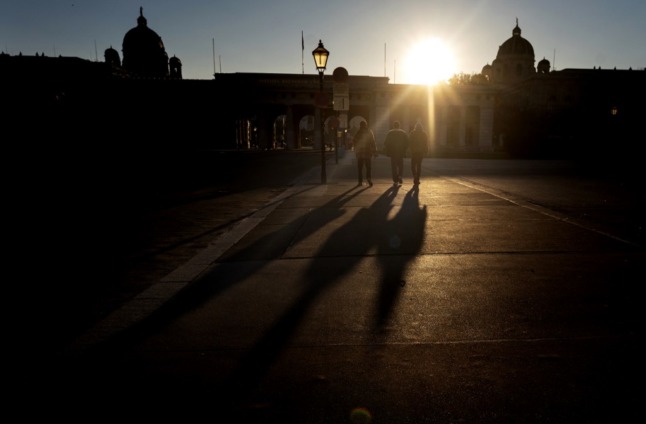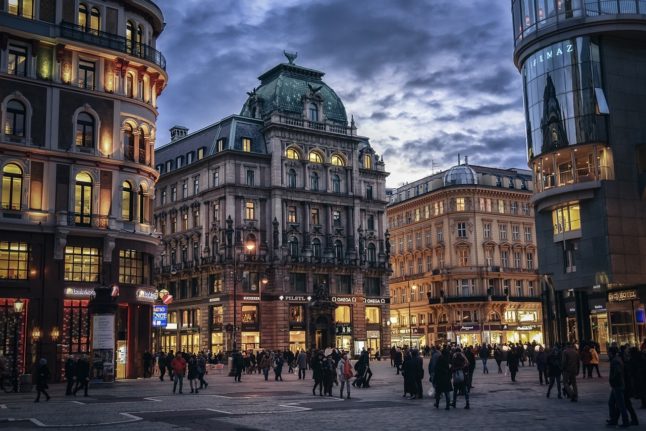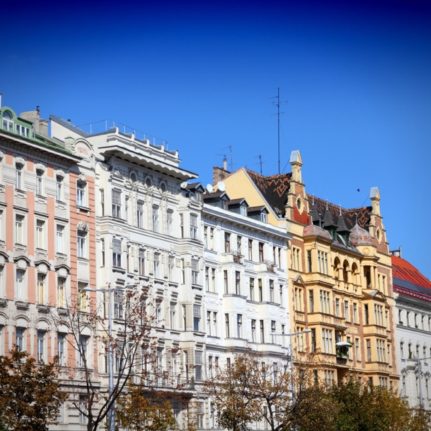Vienna is home to the majority of foreigners living in Austria, so we thought they must have some opinions on the best and worst districts to live.
To find out, we asked readers of The Local to tell us about their favourite and least favourite places in Austria’s capital city.
Here’s what they had to say.
READ MORE: Property buying rules for international residents in Vienna
The best districts in Vienna
Unsurprisingly, the central 1st to 9th districts in Vienna came out on top as the best places to live as an international resident.
Lejla from Bosnia said: “We live in 8th and it’s central, but not too central. It’s vivid and lively, and I feel history everywhere.”
Similarly, Ella said: “Districts 1 to 9 have close proximity to amenities and there is no need to have a car, but they are lacking greener areas and parks.”
Leopoldstadt (2nd district) was named several times by respondents as their favourite district, alongside Alsergrund (9th district), Innere Stadt (1st) and Favoriten (10th).
The latter – Favoriten – is one of Vienna’s most populated districts, according to Stadt Wien. It is also popular with foreigners with more than half of the district’s residents born outside of Austria.
READ ALSO: Vienna Christmas Markets: Here are the dates and locations for 2022
Favoriten resident Vivian, from the USA, said: “It’s affordable, there is a real sense of community, it is very diverse and neighbours are welcoming.”
Meanwhile, Andrew DiGiovanni from the US said his favourite district is Alsergrund for the “green spaces and the canal”, as well as “wide, airy streets – some of which are getting facelifts”.
Andrew added: “[Alsergrund is] close enough to the centre to have some of its old character. Surrounded by three U-Bahn lines, with key trams running through the centre. The 9th will be the hot spot when the U5 comes in.”
Mariahilf (6th district) was also recommended as a good place to live for single people or couples without children, most notably for the close proximity to the Naschmarkt – one of Vienna’s biggest markets and home to many food stalls and restaurants.
Melissa from California, who voted for Mariahilf, said: “[The district is] easy to reach by U4 and fresh food and goods are easy to come by at the Naschmarkt.”
READ ALSO: IN FIGURES: Everything you need to know about who lives in Vienna
What makes a district good?
We didn’t just want readers of The Local to tell us their favourite place to live in Vienna – we also wanted to know why they feel that way.
In a multiple choice question, good access to transport came out on top with almost 87 percent of respondents citing this as the main reason they liked a particular district.
This was followed by amenities (shops, cafes, libraries etc.) at almost 67 percent and community at 60 percent.
Cost, including affordable housing, and access to international schools were the least important reasons for a district to be a good place to live, with respondents voting for them at 43 percent and 30 percent respectively.
FOR MEMBERS: IN NUMBERS: The Vienna districts where most foreigners live

The worst districts in Vienna
Despite several respondents saying Favoriten is one of the best places to live in Vienna, 33 percent named it as the worst.
Paul, from Romania, said Favoriten has “a lot of garbage, old buildings and loud people”.
Ella, who declined to reveal where she is from, said she “did not feel good walking around there”.
But Favoriten wasn’t the only district that was labelled as an undesirable place for foreigners to live, with several respondents citing Ottakring (16th) as the worst district in Vienna.
Referring to Ottakring, Vivian from the US said: “It’s uppity, lonely, there are very limited amenities and the connections aren’t great.”
However, Paul Young from London said Rudolfsheim-Fünfhaus – another district heavily populated with international residents – is the worst place to live in the city.
Paul said: “It’s relatively densely built and away from the Gürtel [outer ring road] with little infrastructure.”
Whereas one respondent from Bulgaria voted for Innere Stadt (1st district) as the worst place to live because it is “loud and grey”.
READ ALSO: UPDATED From lighting to ice skating: How Vienna plans to save energy
What makes a district bad?
While easy access to transport was the main reason for readers of The Local to like a district, community was the most common reason (56 percent) for international residents to dislike a place.
This was followed by limited amenities at 52 percent and selection of schools and childcare facilities at 39 percent.
Just 35 percent said poor access to transport was the reason why a district was a bad place to live and almost 22 percent named cost as a deciding factor.
This section of the survey allowed for multiple choice answers.



 Please whitelist us to continue reading.
Please whitelist us to continue reading.
I haven’t been in Vienna that long, but I have a flat near Josefstädter Straße in the 16th District and like it there. The monthly rent is reasonable, and it is a short walk to the U6 and Brunnenmarkt. A bit of a digital nomad and a ‘minimalist’, so it suits me fine for now.